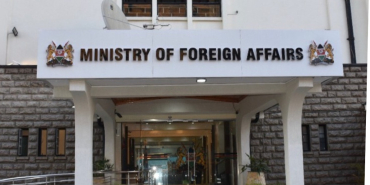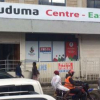Viral Video of Homeless Kenyan Woman in the US Sparks Diaspora Outcry

A viral TikTok video featuring a homeless Kenyan woman in the United States has ignited a wave of concern and calls for action within the global Kenyan diaspora.
The brief video shows a woman identifying herself as Rachel from Kakamega, gratefully accepting food and money from a passing motorist. Her words, "Asante sana! I'm a Kenyan from Kakamega! God bless you!" reveal both her gratitude and her precarious situation. The video, widely shared across social media platforms, has resonated deeply with Kenyans both at home and abroad.
Rachel's apparent hunger and vulnerability have prompted discussions about the challenges faced by migrants who relocate seeking better opportunities, only to encounter social isolation, economic hardship, and inadequate support systems. Rachel indicates that charitable passers-by are her primary source of sustenance. The outpouring of emotion online reflects a broader anxiety within diaspora communities about the rising cost of living globally and the potential for similar situations to become more prevalent.
Comments on social media highlight the difficult realities faced by some migrants. One user questioned the purported benefits of migrating to countries with high living costs, suggesting it might be preferable to remain in Africa. Another expressed shock and concern upon recognising the Luhya language Rachel spoke, calling for her repatriation. Millicent K Asiko echoed this sentiment, emphasising the importance of home. This incident coincides with a similar case in the United Kingdom, where Jayne Waiguru, another Kenyan woman residing in Kingston Upon Thames, is facing eviction and struggling with debts totalling KSh 1.2 million.
She launched a crowdfunding campaign, openly sharing her struggles and admitting to considering compromising her values for survival. Her transparency resonated with the Kenyan diaspora, which has so far raised over KSh 750,000 to support her. Migration, while often presented as a pathway to prosperity, can expose individuals to significant risks and profound loneliness.
Rachel's and Jayne's struggles have reignited discussions about the "American dream" and the systemic challenges that can leave migrants vulnerable. Factors such as shame, lack of access to resources, and fear of legal repercussions often compound the challenges faced by those in precarious situations.








Comments
The name Reminds me of a…
Permalink
The name Reminds me of a Rachael🥺in Houston, TX who (with Her husband Caleb🤓) tried to Render me Homeless by Inciting my Wife (now X) to Divorce me. *These 2🤓🥺people.
She definitely is not that…
Permalink
In reply to The name Reminds me of a… by Mkenyan (not verified)
She definitely is not that Rachel. I know this Rachel, we have been looking for her for the last 15 years. She had mental issues and disappeared off the radar.
Add new comment